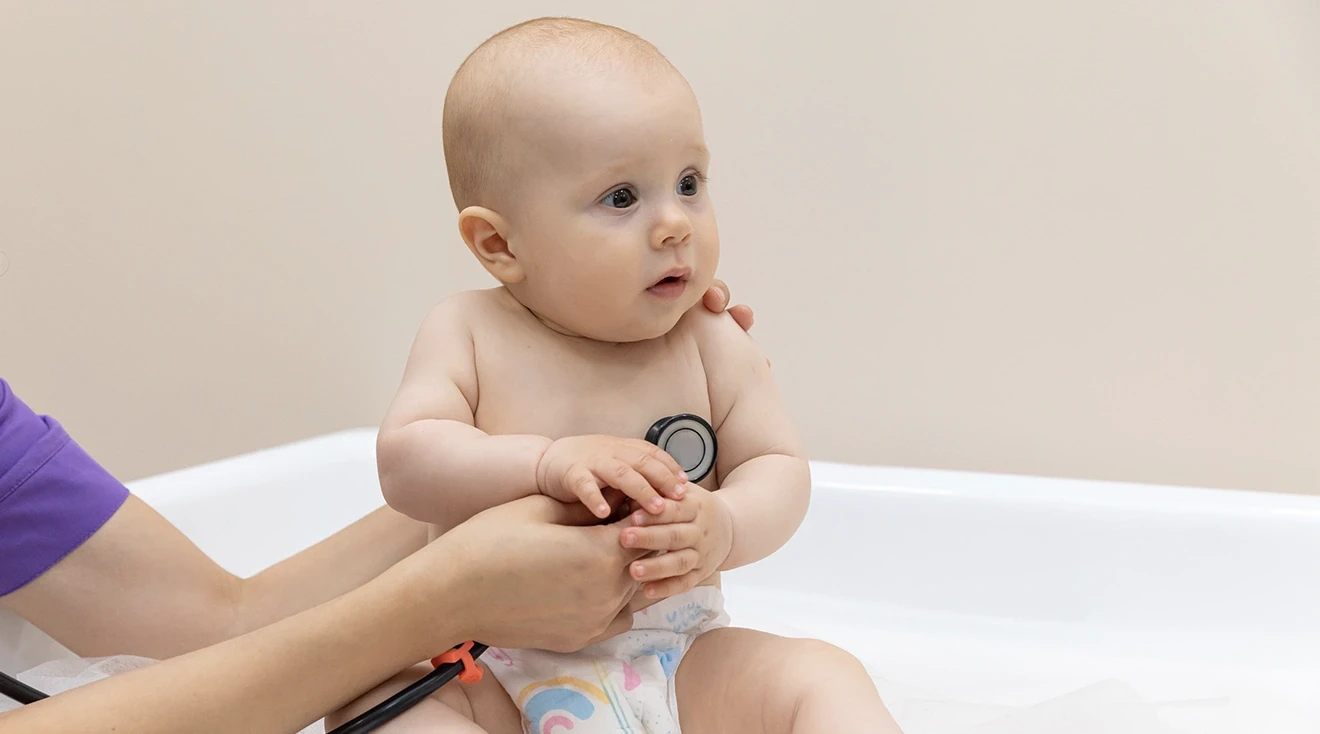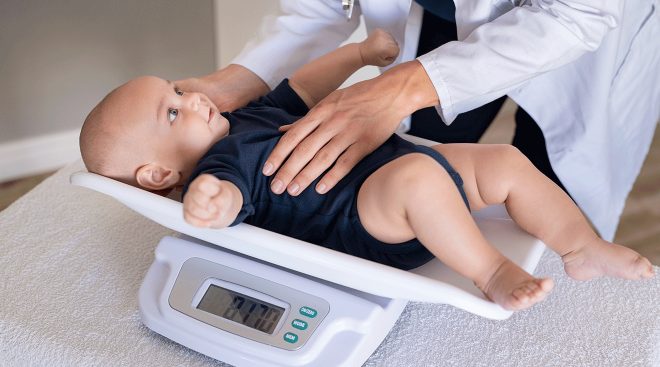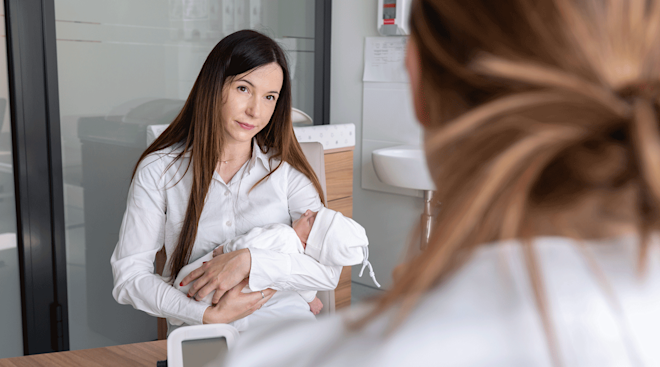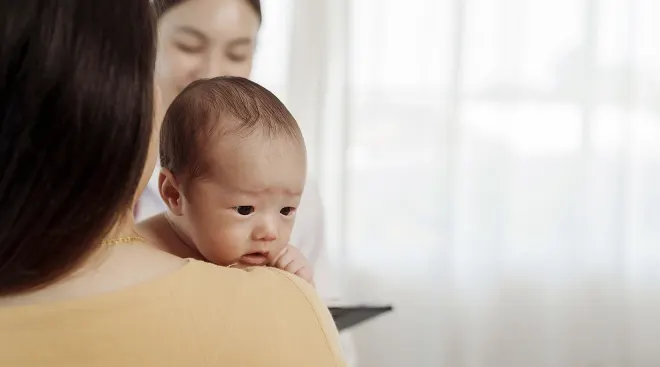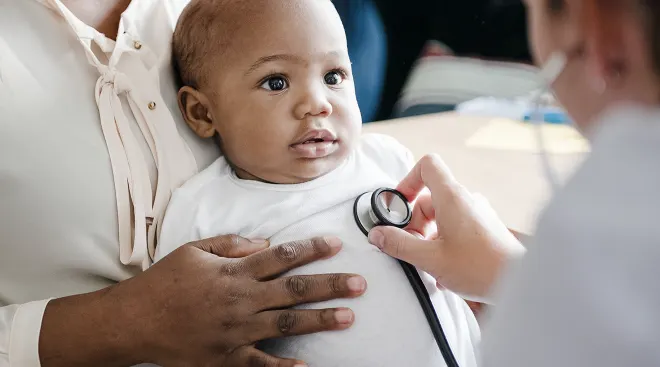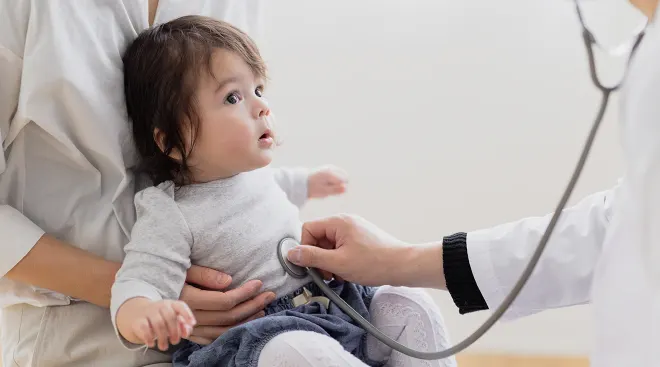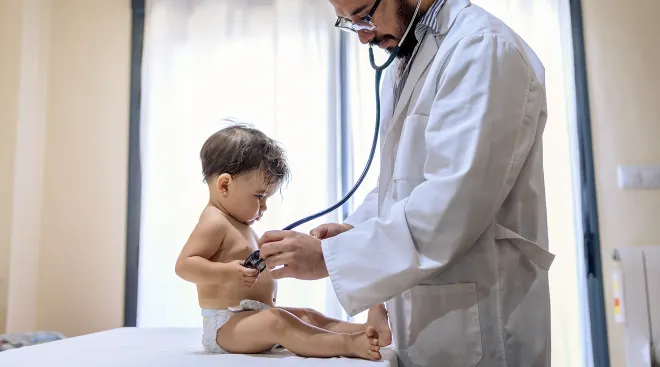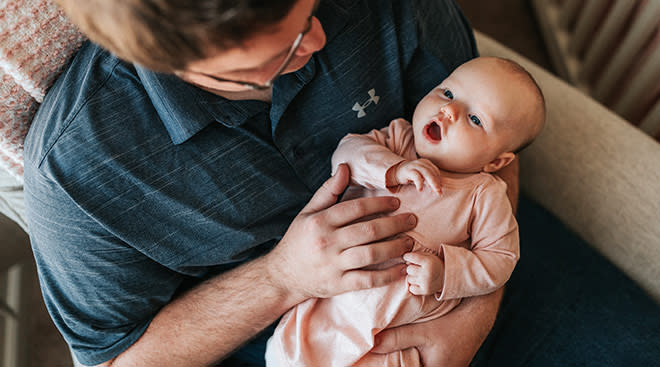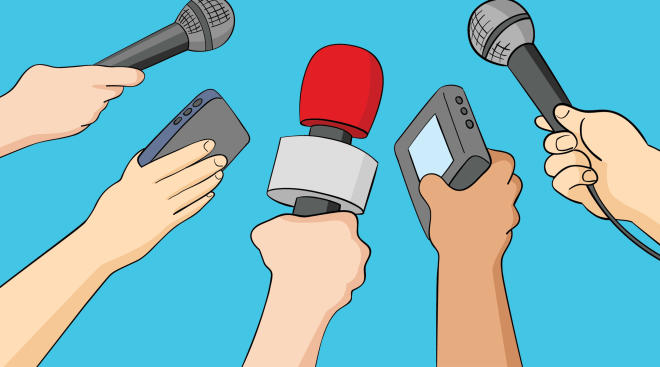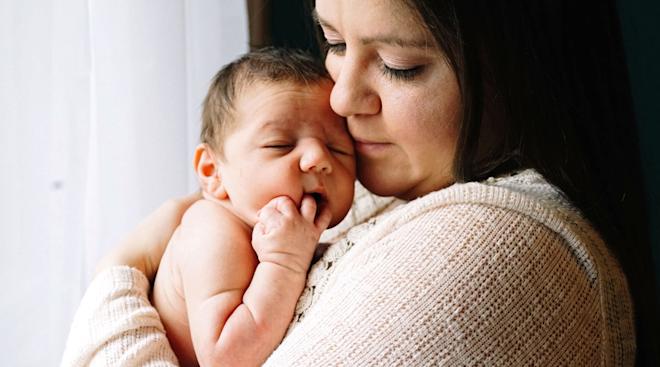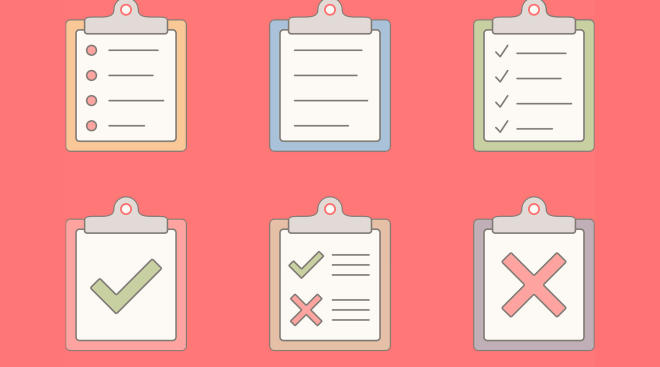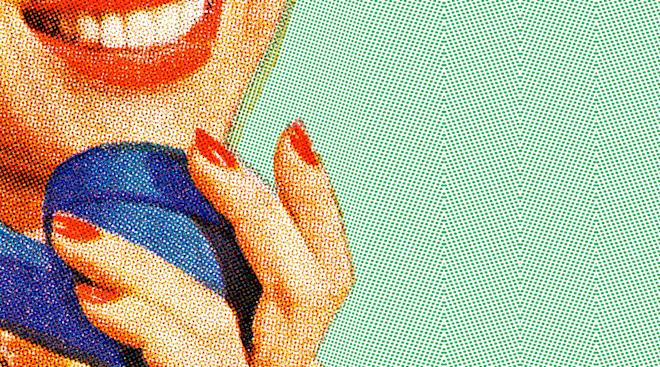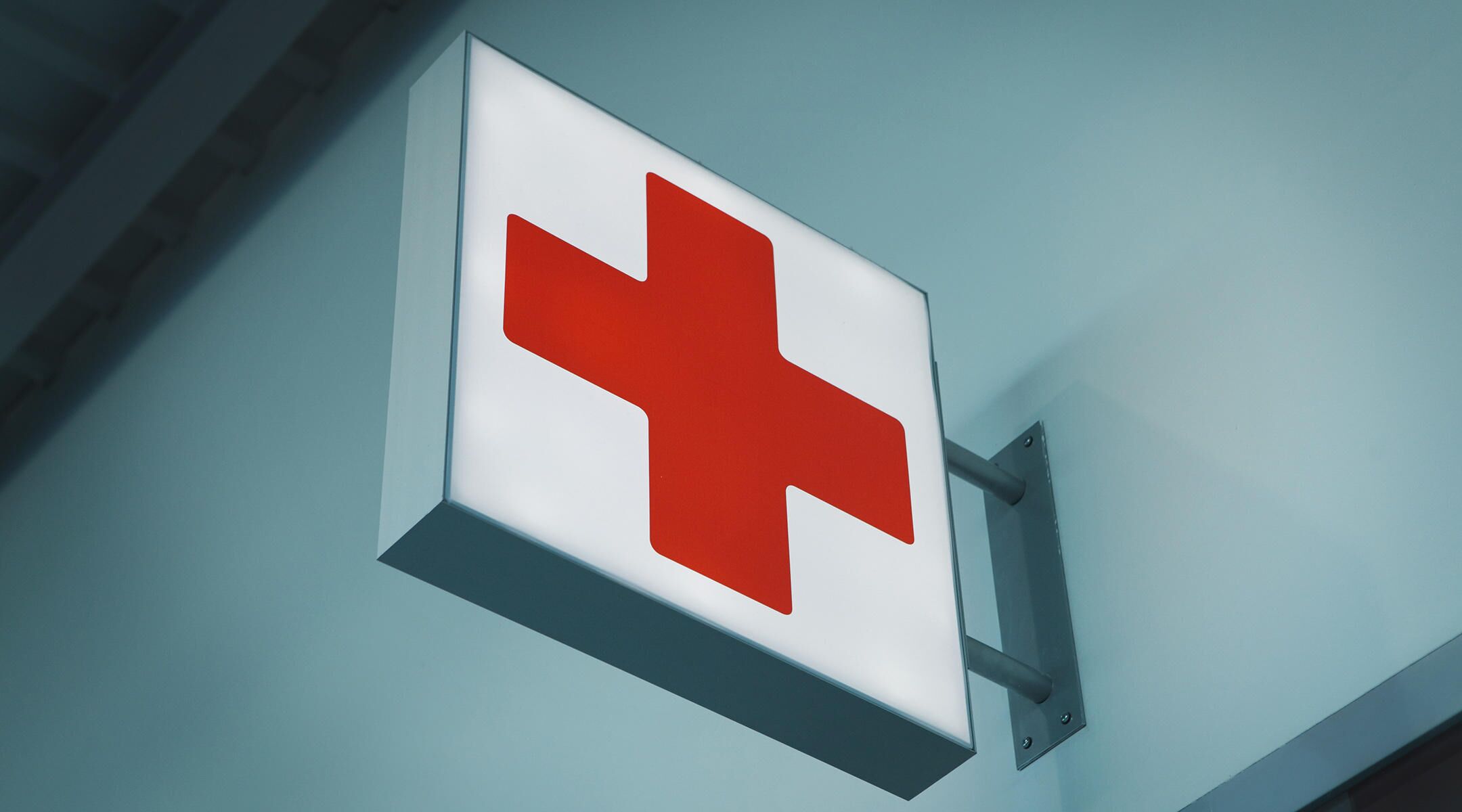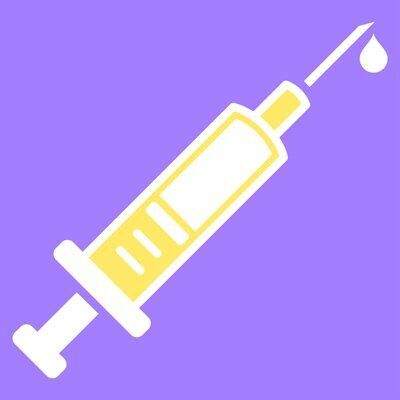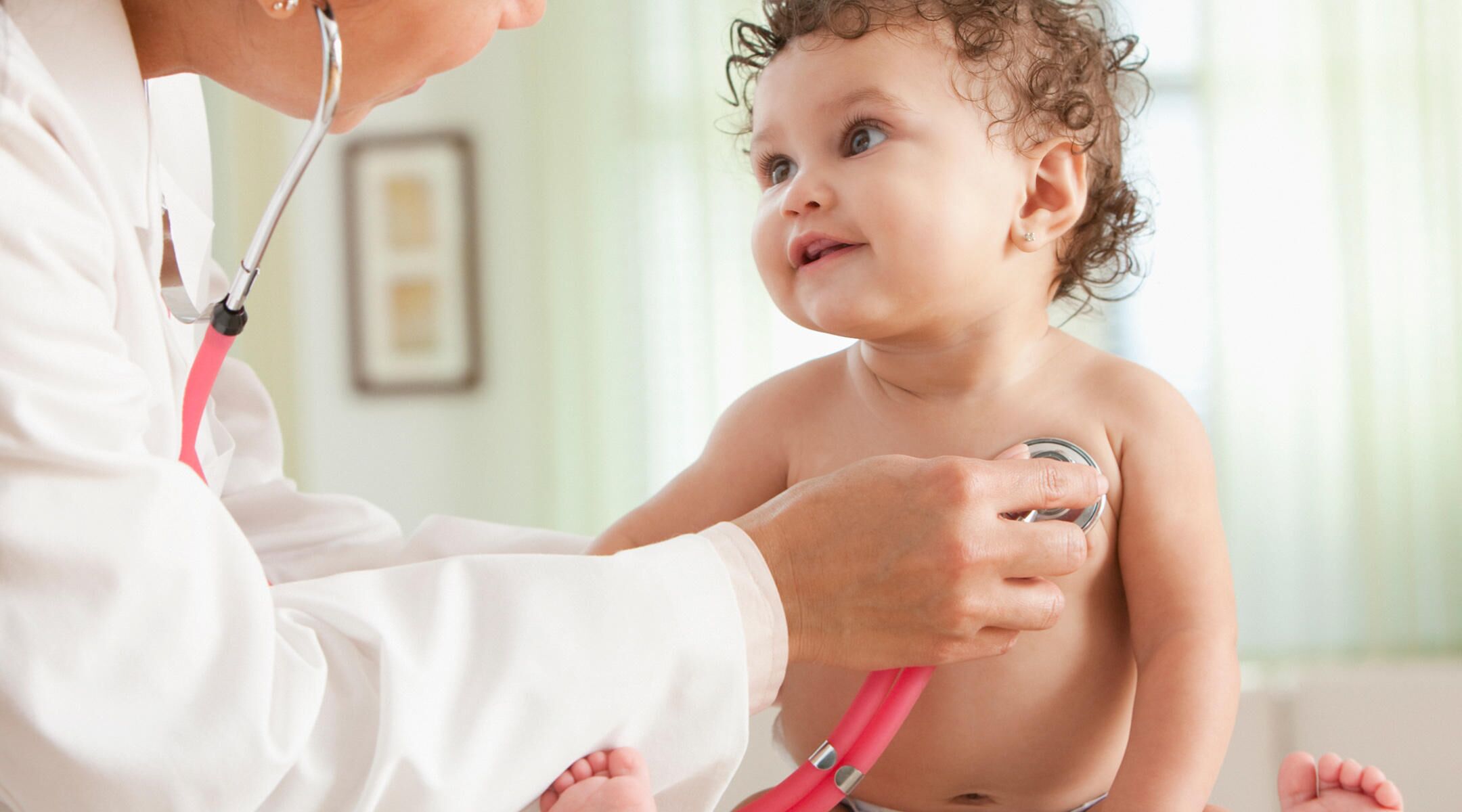What to Expect at Baby’s 9 Month Checkup
At 9 months old, baby is growing quickly and hitting tons of new milestones. Your little cutie may respond to familiar words, babble all day and enjoy specific solid foods. They may even be on the cusp of saying their first words and taking their first steps. To ensure baby is growing well and that their development is on track, your pediatrician will bring them in for their nine-month checkup. Here, pediatricians break down everything to know about baby’s nine-month appointment, including exams to expect, questions to ask and how to best prepare.
Baby’s nine-month appointment will be similar to the six-month checkup, and will include a thorough physical and developmental examination of baby’s growth. Here’s what to expect, plus some questions your pediatrician may ask you.
Physical screenings at the 9-month checkup
At each of baby’s checkups, including the nine-month well child check, your pediatrician will measure baby’s height and weight, as well as their head circumference, says Loretta Cody, MD, a board-certified pediatrician based in Connecticut. They’ll then plot these numbers on baby’s growth chart to ensure their physical growth is on track. Your pediatrician will also check the shape of baby’s head, as well as their soft spots (called fontanelles) to ensure they’re developing properly, adds Preeti Parikh, MD, a pediatrician in New York City. They’ll then also check baby’s heart, lungs, genitals, reflexes, joints, eyes, ears and mouth. In addition to the physical examination, baby may also get a finger prick blood test for anemia and lead, adds Lauren Crosby, MD, FAAP, a pediatrician based in Beverly Hills (though some pediatricians may do this at baby’s next checkup at 12 months).
Milestone assessment at 9 months
According to Cody, at the nine-month appointment your pediatrician will be assessing baby’s development to see if there are any possible delays. By this age, baby should be able to grasp the concept of object permanence and recognize and understand familiar words like “bottle,” “mama” and “dada.” Your pediatrician will likely test some of these skills in the office by asking you to play with baby, the American Academy of Pediatrics (AAP) notes. Plus, according to Cody and Crosby, they may also inquire about:
- Baby’s motor skills, like their ability to wave, clap, point, hold objects, transfer them and pick them up
- Whether baby uses a pincer grasp while playing and self-feeding
- Whether baby rolls around well and sits up for long periods of time
- If baby has started to crawl, pull up to stand or cruise
- Baby’s language development, including how much baby babbles and whether they make “mamamama” and “dadadada” sounds
- Baby’s social development, including how they interact with familiar people and whether they make eye contact
- Whether baby recognizes and responds to their name
- Whether baby reacts when primary caregivers leave the room, and if they’ve started to show any other signs of separation anxiety
- Whether you play peek-a-boo, sing interactive songs and read board books with baby
By 9 months, baby may have started teething and trying more solid foods. Cody says parents should be prepared to answer questions about baby’s dietary and bowel habits. She cites the following as some things your pediatrician may ask you about:
- How often and how much baby eats
- What type of food baby eats (including formula, breast milk and solids)
- How often you introduce new textures and foods into baby’s diet
- Whether baby has a favorite solid food
- Whether baby has had a negative reaction or allergy to any solid foods
- Whether baby self-feeds
- What cups and utensils baby uses
- How often baby drinks water
- How often baby has a bowel movement and what the usual consistency is
- How you’ve been helping baby manage any teething pain
- How you’ve been taking care of baby’s new teeth, including if you’ve started brushing their teeth
Your pediatrician may also do an oral health evaluation, applying fluoride varnish to any new teeth, and potentially referring you to a pediatric dentist.
Sleep check in at the 9-month checkup
At 9 months old, baby still needs to get plenty of quality sleep for their growth and development. “Your pediatrician will ask many questions about your child’s [sleep habits],” Cody says. Some questions to expect:
- How much does baby sleep in a 24-hour period?
- What does their bedtime routine like?
- How often does baby nap (and for how long)?
- Does baby sleep through the night?
- How do you handle baby waking up at night?
- Is baby able to self-soothe and go back to sleep if they do wake up?
- Does baby have consistent sleep and wake-up times?
- Where does the baby sleep and what his in her sleep environment to ensure safe sleep
Child safety check in at the 9 month checkup
Baby is moving around and will soon be taking their first steps, so it’s important to ensure your home is properly babyproofed. According to the AAP, some child safety questions and topics your pediatrician will inquire include:
- Whether TVs and large furniture items have been anchored to the walls
- If stairs and windows in the house have been childproofed
- Whether baby is around any large bodies of water, and if they have gates
- If you know what to do in a choking emergency and how to perform infant CPR
- How often you tell baby “no,” and in what situations
Along with baby’s safety, your pediatrician may also ask about your overall mental health, according to the AAP.
Most immunizations for babies are offered within age ranges, Crosby says, so exactly when baby gets each dose of a given vaccine will ultimately depend on your pediatrician’s office. The AAP says baby may get a dose of their hepatitis B vaccine and/or their polio vaccine at the nine-month appointment. However, according to Parikh, unless they’ve missed any doses and need to catch up, baby may not get any vaccines at this visit. Of course, if it’s cold and flu season, your pediatrician may recommend the flu or Covid-19 vaccine, Cody adds.
Cody encourages parents to bring any and all questions they have to baby’s nine-month appointment. To ensure nothing is forgotten, consider writing down your thoughts in a notebook you bring with you to the checkup. Below, the AAP, Cody and Crosby list some topics parents should bring up at baby’s nine-month well child check:
- How often baby should eat, including how much formula, breast milk and solid foods they consume
- When baby should start using cups, plates and utensils
- When baby should wean off their bottle
- Foods that baby shouldn’t have and foods that are choking hazards
- Ways to help baby’s separation anxiety
- How to ease baby’s teething pain safely
- How to know if baby’s toys are safe or if any have been recalled
- What to know about buying a new car seat and when to do it
- How many hours baby should nap, and what their overall sleep schedule should be
Along with the above subjects, both experts also note that caregivers should look out for and bring up the following developmental red flags:
- Any regression in development
- If baby doesn’t interact with familiar people or make eye contact
- If baby doesn’t respond to their name
- If baby doesn’t make “mamamama” and “dadadada” sounds
- If baby can’t wave, clap, point, roll over, sit up or bear weight on their legs
The best way to prepare for the nine-month well child check is to organize any notes and questions you have about baby’s growth ahead of time. But in terms of the actual appointment, you’ll also want to prepare for any waiting times you may encounter at the doctor’s office, Crosby says. Come prepared with snacks, bottles, extra diapers, wipes, extra clothes and some books, in case baby gets hungry, bored or needs a change. It’s also a good idea to bring comfort items, like a favorite toy or a pacifier in case baby becomes upset during the exam.
Pediatrician checkups can be nerve-wracking, but also really exciting. And if you have any questions or concerns, know you don’t need to wait for baby’s appointment to reach out to your pediatrician. As for when baby’s next checkup will be, you can expect to be back once your little one hits the 12-month mark.
Please note: The Bump and the materials and information it contains are not intended to, and do not constitute, medical or other health advice or diagnosis and should not be used as such. You should always consult with a qualified physician or health professional about your specific circumstances.
Plus, more from The Bump:
Loretta Cody, MD, is a board-certified pediatrician based out of Connecticut. She received her medical degree from New York Medical College and completed her residency at Yale New Haven Children’s Hospital.
Lauren Crosby, MD, FAAP, is a pediatrician with La Peer Pediatrics in Beverly Hills, California, as well as a mom of two. She earned her medical degree from UCLA School of Medicine and completed her residency at Cedars-Sinai Medical Center. She currently serves as an official spokesperson for the American Academy of Pediatrics.
Preeti Parikh, MD, is a pediatrician with Westside Pediatrics, located in New York City, as well as a spokesperson for the American Academy of Pediatrics. She earned her medical degree from Rutgers University and completed her pediatric residency at Mount Sinai Hospital.
Healthy Children (American Academy of Pediatrics), Checkup Checklist: 9 Months Old), September 2021
Learn how we ensure the accuracy of our content through our editorial and medical review process.
Navigate forward to interact with the calendar and select a date. Press the question mark key to get the keyboard shortcuts for changing dates.

































